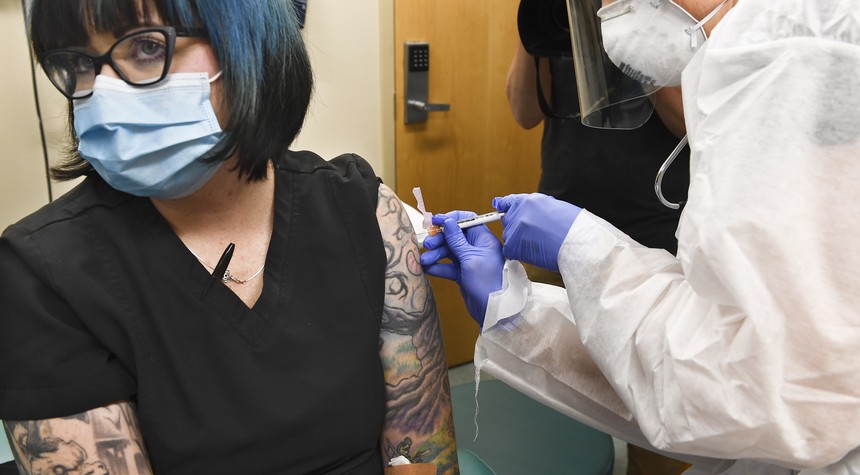New Study Shows Breakthrough Infection Risk Not All It's Cracked Up to Be

According to data compiled by the Centers For Disease Control, approximately one in every 5,000 vaccinated Americans has tested positive for the coronavirus. That number is probably much lower in places with significantly fewer cases — like the Northeast, Chicago, Los Angeles, and San Francisco areas, where it is probably fewer than one in 10,000.
This is the first detailed data about so-called “breakthrough” infections — positive tests from people fully vaccinated. The data suggests that politicians and public health officials are wildly overreacting to the delta variant’s effect on the already vaccinated.
Here’s one way to think about a one-in-10,000 daily chance: It would take more than three months for the combined risk to reach just 1 percent.
“There’s been a lot of miscommunication about what the risks really are to vaccinated people, and how vaccinated people should be thinking about their lives,” as Dr. Ashish Jha of Brown University told my colleague Tara Parker-Pope.
Of course, this study will be largely ignored by politicians. They will go on pretending that vaccinated people can contract COVID-19 almost as easily as the unvaccinated.
Equally frustrating has been the widely held belief that vaccinated people who test positive can easily spread the virus, suggesting that the “viral load” in their nasal passages and throats makes them walking pandemic superspreaders.
Not hardly.
These numbers help show why the talking point about viral loads was problematic. It was one of those statements that managed to be both true and misleading. Even when the size of the viral loads are similar, the virus behaves differently in the noses and throats of the vaccinated and the unvaccinated.
In an unvaccinated person, a viral load is akin to an enemy army facing little resistance. In a vaccinated person, the human immune system launches a powerful response and tends to prevail quickly — often before the host body gets sick or infects others. That the viral loads were initially similar in size can end up being irrelevant.
There’s been a lot of that “true but misleading” going around since the pandemic began.
But how should this information affect public policy? It’s clear that the restrictions have bred resentment and distrust of authorities — and for good reason — especially when studies like this are released. We have become so risk-averse that it’s impossible for many people to weigh these risks against what we might gain from eliminating them.
Has Great Britain figured it out?
In Britain, many people have become comfortable with the current Covid risks. The vaccines make serious illness rare in adults, and the risks to young children are so low that Britain may never recommend that most receive the vaccine. Letting the virus continue to dominate life, on the other hand, has large costs.
“There’s a feeling that finally we can breathe; we can start trying to get back what we’ve lost,” Devi Sridhar, the head of the global public health program at the University of Edinburgh, told The Times.
That’s not going to happen in America until the politicians can accept the fact that we will never rid the world of the coronavirus and must learn to live with it and manage its risks. In the case of healthy adults and children, the risks are ridiculously small. They’re even smaller if you get vaccinated.
The current hysteria over the pandemic is fueled by the media, which has tried to sensationalize and politicize the pandemic from the start. Public policy won’t change until the media stops its “end of the world” coverage and begins to cover COVID-19 as a public health issue.
No comments:
Post a Comment